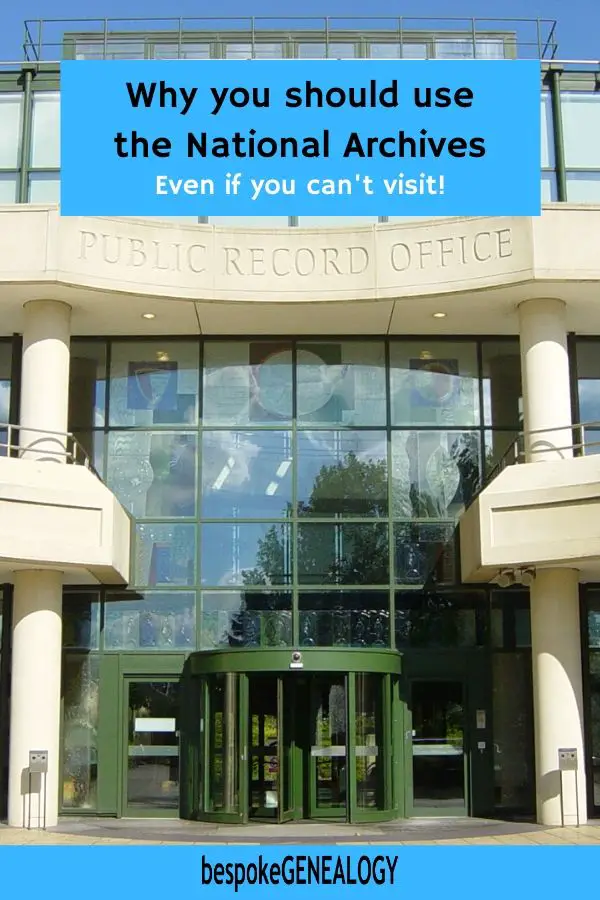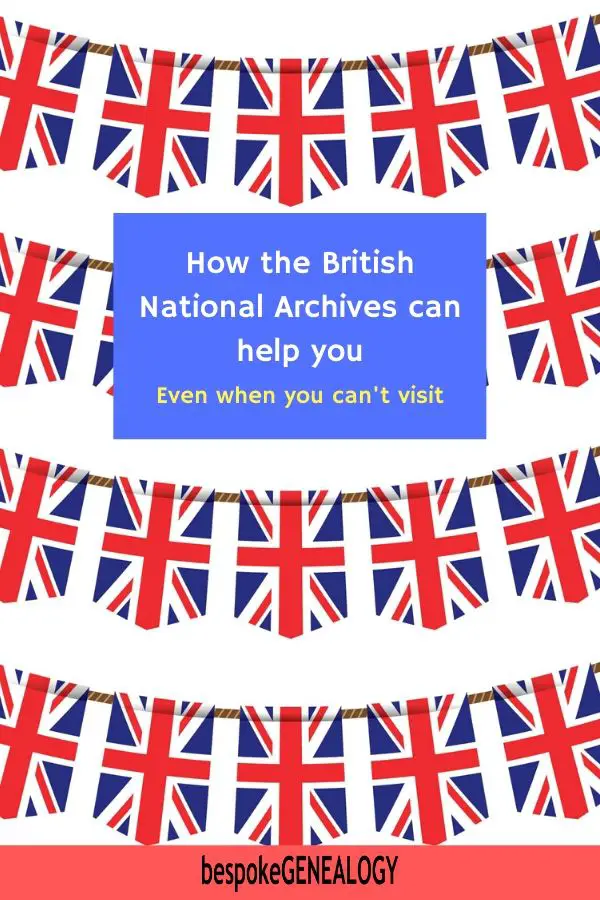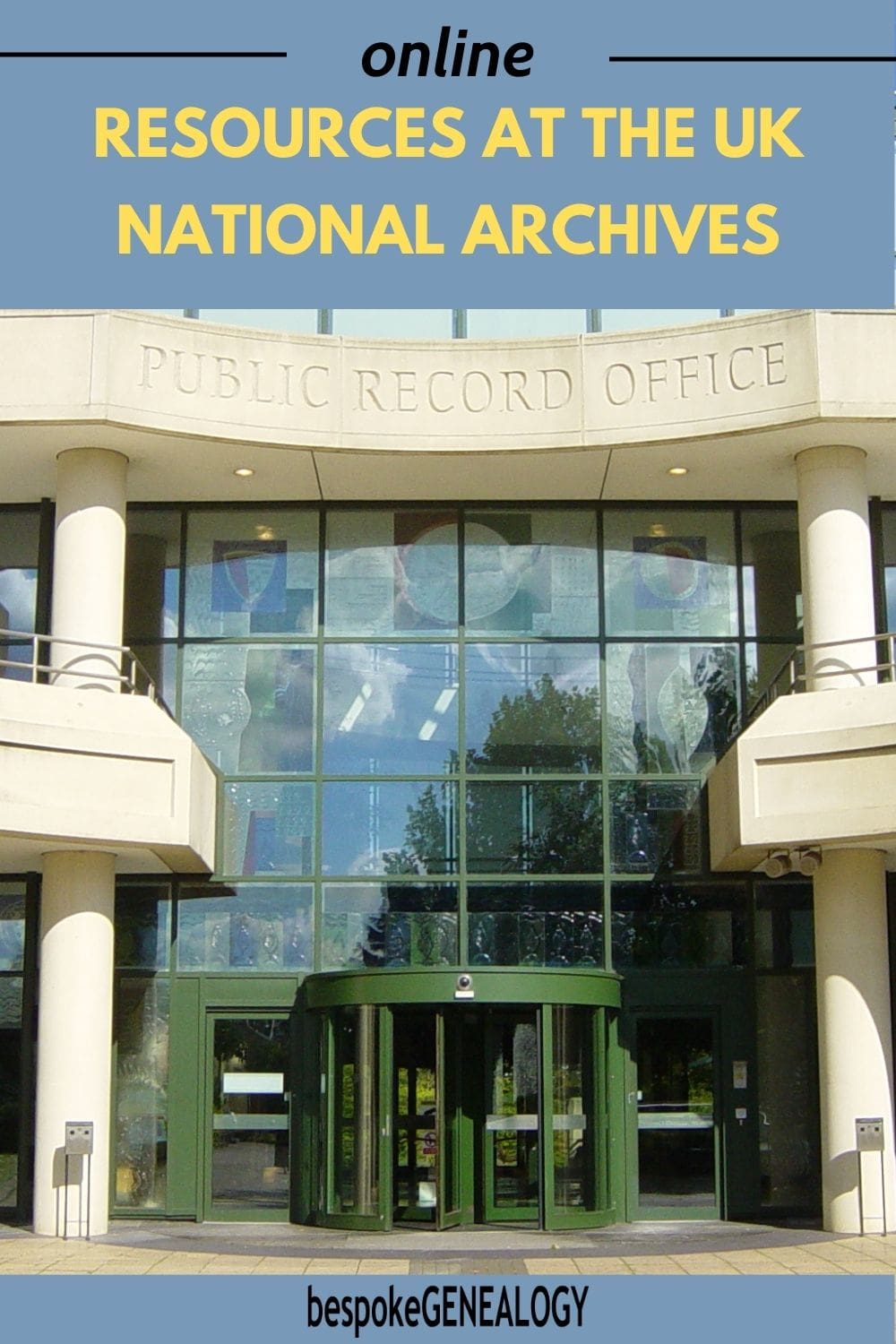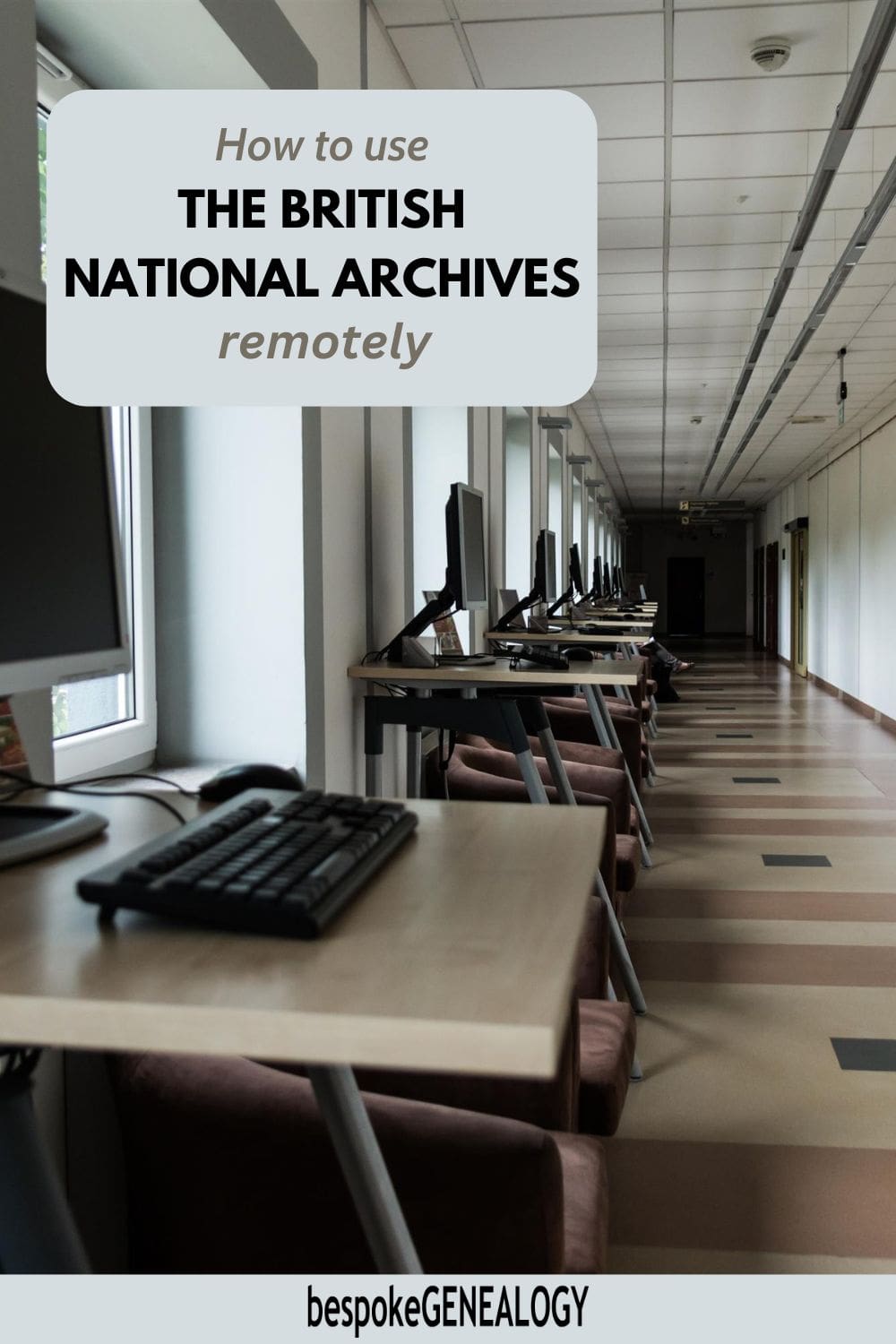If you have British ancestry, then sooner or later you are going to need the National Archives (TNA) in London. Most family historians are not able to visit in person, so never visit the TNA website. This is a pity as it contains a wealth of helpful information for genealogists. So, this post looks at how you can use the National Archives without being able to visit in person.

The National Archives
The National Archives (TNA) in Kew, London is the national repository for England and Wales and also holds historic documents relating to Scotland and Ireland. If you’re researching your British family, I recommend getting to know this website as it contains lots of useful information including research guides, tutorials, webinars, podcasts and a blog. See the Help with your research page for links to the some of this information.
Research Guides
The National Archives has a massive collection of research guides with helpful information about the records it holds as well those held by other archives. These include 192 family history guides covering the following areas:
- Army and militia
- Births, marriages and deaths
- Census and other national surveys
- Courts, criminals, prisoners and litigants
- Divorce, adoption and change of name
- Foreign and colonial
- Health and welfare
- Houses, schools and other institutions
- Immigrants, emigrants and refugees
- Medals and awards
- Merchant Navy
- Occupations, commerce and trade
- Prisoners of war and internees
- Religious groups
- Royal Air Force and other air services
- Royal Navy and Royal Marines
- Tracing living people and electoral registration
- Wills, inheritance and land ownership
You can see a full list of family history research guides here
Tutorials
The further back you get with your research, the harder it is to read original documents. Before the 19th century, almost all documents were hand written. Hand writing conventions were different then, so it can be almost impossible to decipher what was written.
TNA has an excellent Paleography Tutorial (the study of old handwriting). It has a great practical interactive section that takes you through 10 old document examples from the 1500s to the 1800s.
Many older documents were written in Latin. TNA also has a useful Latin Paleography tutorial.
And if you manage to get your research back to medieval times, then the National Archives also has a two-stage tutorial in Medieval Latin:
Records at the National Archives
The records held by the archive go back 1000 years. These records cover the military, courts and prisons, foreign and colonial history, the medieval period and many other topics. The website has a powerful search engine called Discovery. Here you can search the index of the 32 million records held by TNA and other archives.
Only around 5% of TNA’s records have been digitized and are online. You can find these records here. Some of these online records can only be accessed on other database sites like Findmypast and Ancestry. If that’s the case, you’ll find links. The other records can be downloaded directly from the TNA site. There is a charge for most of these records, although some are free.
If you’re not able to visit the TNA in person to view some of the 95% of documents that are not online, then you can pay TNA or an independent researcher to find and copy documents for you. Details are on the Paying for research page.
For more on paying for help see: When You Should Hire A Genealogy Researcher
The Gazette
Finally, I should mention the Gazette, which is an often-overlooked free British genealogy resource with records going back 350 years!
The Gazette is the official British government publication of record and is overseen by TNA. Editions are effectively archived as soon as they are published making every issue accessible online for free.
The content of an edition of The Gazette is made up of notices. These include:
- State and public sector notices such as Acts of Parliament being passed, official announcements, and the Queens honors
- Insolvency notices such as bankruptcy
- Personal legal notices, such as changes of name
- Company notices
In addition to the regular Gazette, special supplements are also published:
- Weekly military supplement
- Weekly Company Law Supplement
- Gazette Extraordinary. This is a special edition only published at times of national importance such as a declaration of war.
If you’ve never used The Gazette, I recommend browsing through a recent edition to get an idea of the type of information published. From the main menu hover over “Notices” then select “Publications”. Or click here to go directly to the page. You can download a pdf copy of an issue.
For more on this great resource see: An Amazing Free British Genealogy Resource: The Gazette.
Happy researching!
Please pin a pin to Pinterest:





Leave A Comment